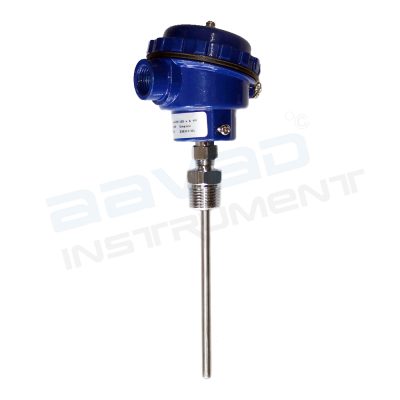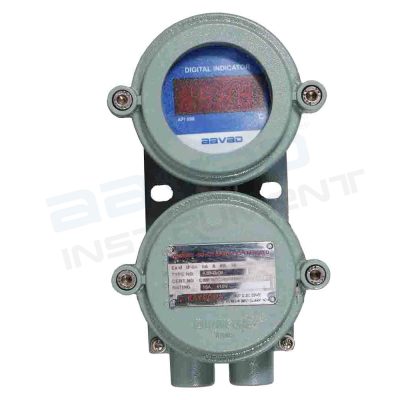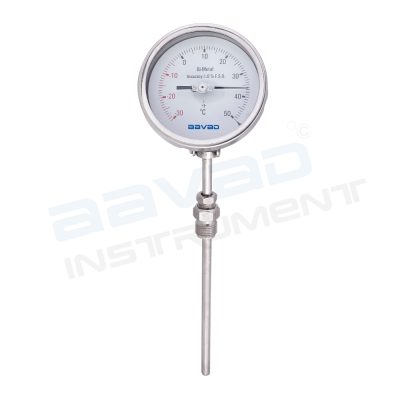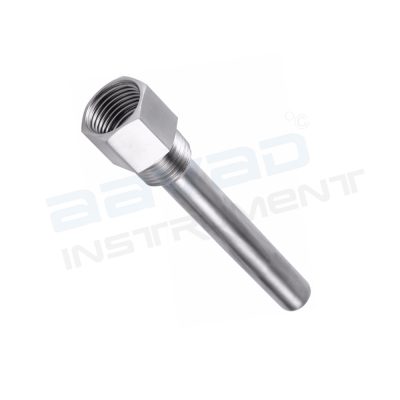Thermowell
Thermowells are cylindrical fittings used to protect temperature sensors installed in industrial processes. A thermowell consists of a tube closed at one end and mounted in the process stream. A temperature sensor such as a thermometer, thermocouple, or resistance temperature detector is inserted in the open end of the tube, which is usually in the open air outside the process piping or vessel and any thermal insulation. Thermodynamically, the process fluid transfers heat to the thermowell wall, which in turn transfers heat to the sensor. Since more mass is present with a sensor-well assembly than with a probe directly immersed into the process, the sensor’s response to process temperature changes is slowed by the addition of the well. If the sensor fails, it can be easily replaced without draining the vessel or piping. Since the mass of the thermowell must be heated to the process temperature, and since the walls of the thermowell conduct heat out of the process, sensor accuracy and responsiveness is reduced by the addition of a thermowell.
Traditionally the thermowell length has been based in the degree of insertion relative to pipe wall diameter. This tradition is misplaced as it can expose the thermowell to the risk of flow-induced vibration and fatigue failure. When measurement error calculations are carried out for the installation, for insulated piping or near ambient fluid temperatures, excluding thermal radiation effects, conduction error is less than one percent as long as the tip is exposed to flow, even in flanged mounted installations.
The response time of the installed sensor is largely governed by the fluid velocity and considerably greater than the response time of the sensor itself. This is the result of the thermal mass of the thermowell tip, and the heat transfer coefficient between the thermowell and the fluid.
Showing the single result
-
Threaded Thermowell | 100 MM (Copy)
Original price was: ₹250.00.₹100.00Current price is: ₹100.00.




